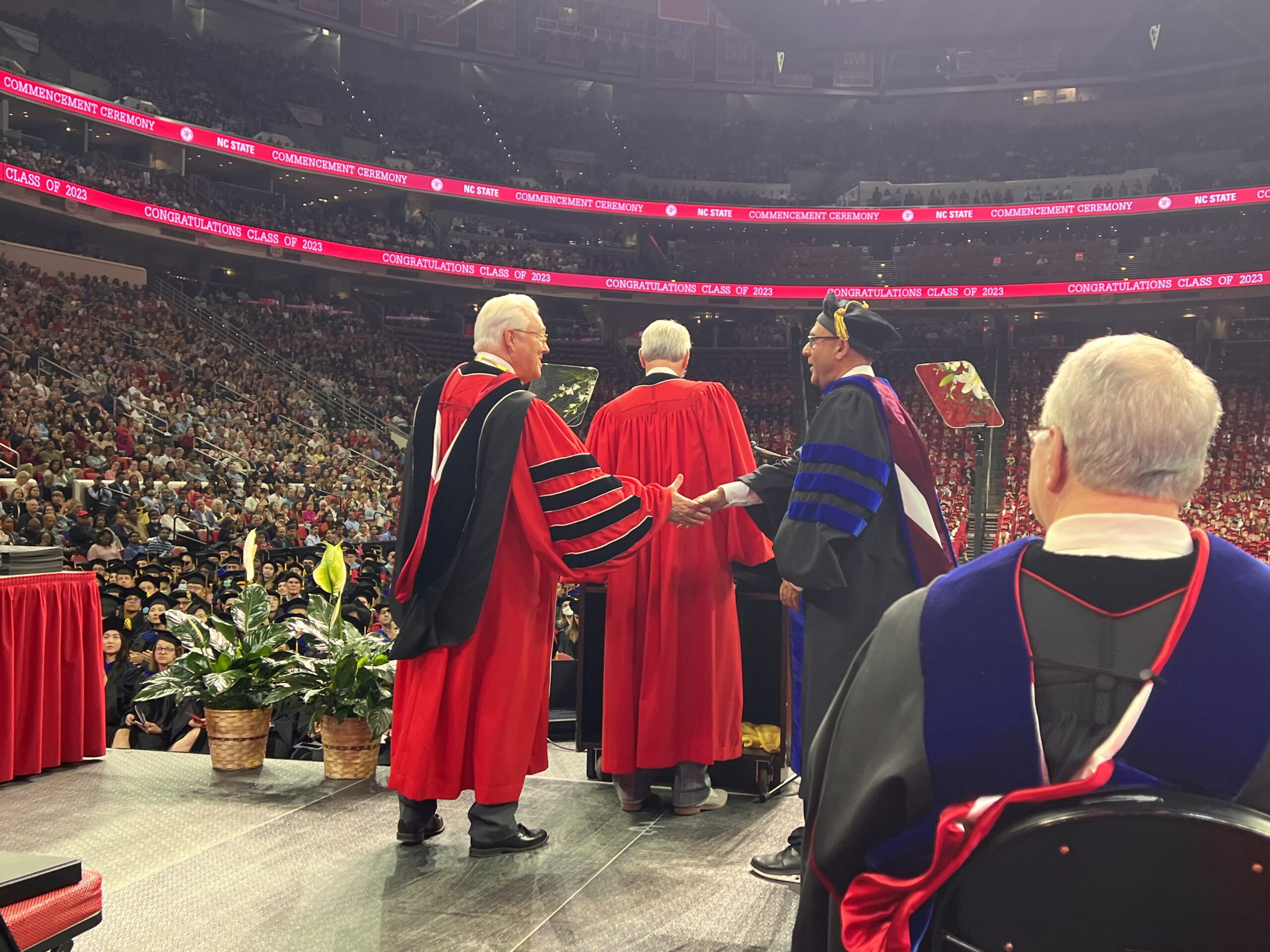Teaching

Teaching Awards
- Board of Governors Award for Excellence in Teaching Winner (2023) – Most prestigious Teaching Award given to faculty from among NC State’s 10 degree-granting colleges.
- TRIO Champion Award (2023) – recognition of dedication to the TRIO program to ensure equal access to higher education for first-generation, under-resourced students with disabilities and other underrepresented groups.
- Quality Matters Course Recognition (2022) – attained various Quality Matters certifications and successfully received QM certification for PRT 506.
- Alumni Distinguished Undergraduate Professor Award, 2015 –– in recognition of distinguished service in support of undergraduate teaching.
- NC State Outstanding Teaching Award, 2009/10 – Inducted into the Academy of Outstanding Teachers
- College of Natural Resources Outstanding Teacher, 2009/10
- PRTM Outstanding Teacher, 2009/10
- Faculty Instructional Technology Summer Institute Teaching Award, 2003 – Awarded to a faculty member interested in utilizing technology to enhance their teaching
- Roger Ritvo Award, 2003 – Awarded to a faculty member and undergraduate student who collaborate successfully in research
Teaching Philosophy
Research in higher education has demonstrated the value of faculty-student contact as a facilitator of enhanced student learning and development. Similarly, research on college student learning consistently focuses on the value of student-centered learning environments. My teaching philosophy embraces these two concepts driving my teaching approaches and methods over my career at both the University of New Hampshire and NC State University. I firmly believe the relationship between a teacher and student is crucial. I have always been more motivated to learn when I felt that a teacher or professor took an interest in me and thus I strive to create an environment to harness that relationship.
I also believe strongly in the concept of bridge-building, both as a metaphor for developing relationships with students and other partners, and as a pedagogical strategy in terms of course content delivery. “Bridge-building” with students can take many forms. In my case, it starts with knowing students’ names and interests and is focused on approachability. Finding time for faculty-student contact, both inside and outside the classroom can be a difficult process. I have tried to maintain on open-door office policy so that students have access to me. Discussions with students are often centered on course work or academic progress, but frequently are related to other issues affecting students’ lives – career advice, professional development concerns, academic direction, or other areas of student interest. Those that know me understand that student contact is something that I take extremely seriously and is a consistent goal each semester.
My past use of service learning as a pedagogical strategy and my encouragement of student involvement in out-of-class learning activities (attendance at professional conferences and workshops) help me to build relationships with students in less formal settings. Part of this approach is driven by my commitment to mentorship. In many ways, my own mentors helped get me to where I am today. I have tried to incorporate mentoring (both academic and professional) as a component of my teaching and advising philosophy. Of course, student-centered learning by nature is a shared effort – students must learn from each other as well as from the professor. This can be difficult to accomplish, given that some of the courses I have taught in the past have had up to 90 students. Indeed in large classes, it is easy to fall into the lecture-listen trap. While I do make use of lecture as a teaching strategy from time-to-time, my goal is to approach each course with a small-class mentality. I accomplish this by integrating group in-class writings and case study analysis, along with encouraging collaborative work on projects (where appropriate) outside of class. I also realize the importance of diversity in presenting material. I am highly cognizant that individuals have a variety of learning styles and come into a classroom with different levels of preparation and experience. This has pushed me to consistently readjust my teaching delivery, designing a successful on line course for professional Master’s students working full time.
Some of the general principles that I have found useful in facilitating and nurturing these principles are fairness, flexibility, and humor. I believe that fairness is an environment in which ALL of my students desire to learn the material and that the work which they produce is judged without any bias. I have found that flexibility requires me to listen to my students while interpreting their environment and other external cues. Once I have done this, feedback given to me by my students can be interpreted effectively. The use of humor has allowed me to increase my students’ awareness of the material. I have also found that humor helps reduce the unspoken barriers, creating a fluid communication between myself and my students. Much of my humor is self-deprecating which brings a humanness to my lectures. This process has been found to reduce the barriers to two-way communication between myself, and my students. My genuine enthusiasm for not only the material but also my students’ well-being, further guides my teaching. It is my goal to maintain a well-managed but relaxed environment in which students feel comfortable enough to interact and learn.